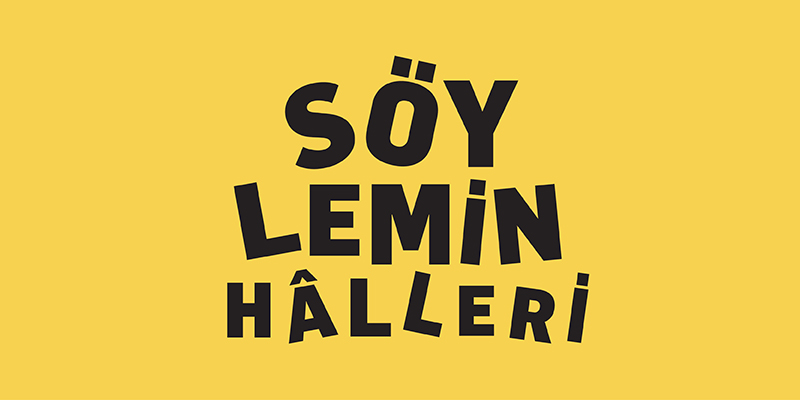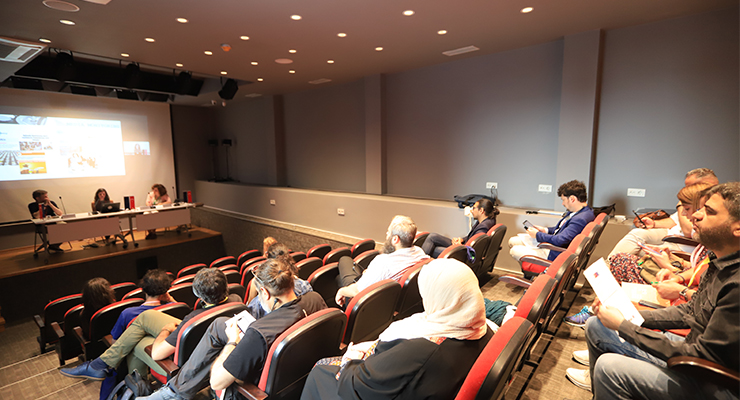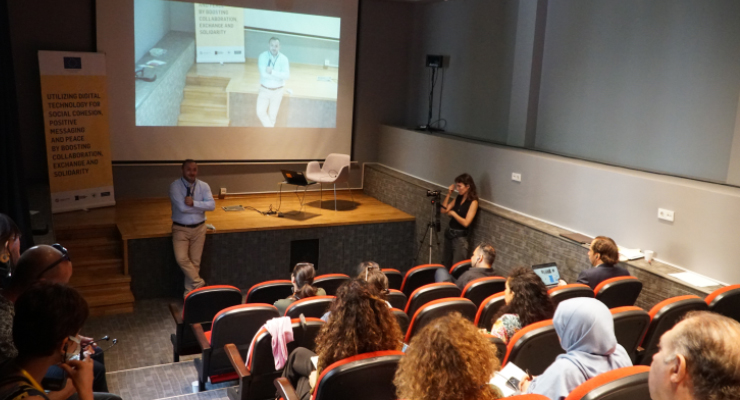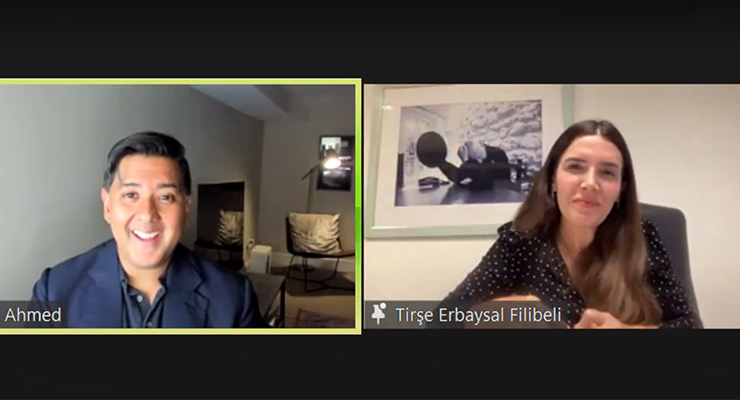In 2022 the Hrant Dink Foundation started the project entitled “Utilizing Digital Technology for Social Cohesion, Positive Messaging and Peace by Boosting Collaboration, Exchange and Solidarity”, with the financial support of the European Union and Friedrich Naumann Foundation, and in partnership with Boğaziçi University and Sabancı University.
The project, which establishes cooperation among different disciplines such as linguistics, computer science, social sciences, the information sector and civil society, aims to create a methodology specific to digital media and to develop an algorithm with the collected data. This will be achieved by bringing together two pioneering universities in Turkey, academics and students working in the fields of linguistics and computer engineering and by utilizing artificial intelligence technology in order to detect hate speech and discriminatory discourse which are becoming increasingly visible in digital media, especially on Twitter.
As part of the project, the Hrant Dink Foundation has prepared a podcast channel called 'Söylemin Hâlleri' where, with guest experts working in the fields of hate speech, discriminatory discourse, disinformation, artificial intelligence and digital activism, we will discuss current issues and problems in the field of discourse studies. By discussing basic questions and problems, we hope to raise awareness about issues such as hate speech, discriminatory discourse and disinformation. Questions such as “Is it possible to detect hate speech and discriminatory discourse with precise statements and methods?”, “What are the pros and cons of using artificial intelligence technology to detect hate speech?”, “How does misinformation or incomplete information play a role in the generation of hate speech?” “How and to what extent does false reasoning affect our belief in misinformation and in the production of hate speech?” will be discussed and we hope to be a part of the solution by thinking together on ways to build an inclusive discourse in the digital world.
Legal Regulations on Artificial Intelligence Tools
Selin Çetin

In this episode of Söylemin Halleri, we talked about the legal regulations on artificial intelligence tools with our guest lawyer Selin Çetin. We mentioned about the European Union's draft artificial intelligence regulation, what is envisaged within the scope of the regulation, and what are the limitations.
Representation of Refugees in the Media
Dilan Taşdemir

In this episode of Söylemin Halleri, we talked with our guest Dilan Taşdemir about how discriminatory discourse against refugees is produced in the media. We discussed the topics and methods through which discriminatory discourse is produced in relation to the representations of refugees in the media.
How Hate Speech Is Produced Toward LGBTI+?
Eser Selen

In this episode of Söylemin Hâlleri, we talked with Eser Selen, an independent researcher, about how hate speech and discriminatory speech toward LGBTİ+ are produced. We discussed the ways and themes that hate speech forms around against LGBTİ+ on print and social media.
Machine Learning and Natural Language Processing
Arzucan Özgür

In this episode of Söylemin Hâlleri, we talked with Arzucan Özgür, an academician from Computer Engineering Department of Boğaziçi University, and talked about the areas where natural language processing is benefitted, its various methods and limitations under the scope of the cooperation of humans and machines.
Hate Speech and Thinking Errors
Metin Bayrak

In this episode of Söylemin Hâlleri, we talked to our guest Metin Bayrak, an independent researcher, about how thinking errors process and what role they play in the production of hate speech. We shared which questions we can use to analyse the discourse examples we encounter in order to identify hate speech.
Disinformation and Polarization
Suncem Koçer

In this episode of Söylemin Halleri, we talked about the relationship between disinformation and polarization , Anthropologist of Media and Communication and executive director of Infodemilab. We touched upon the intertwining of polarization and disinformation, and the importance of evaluating disinformation in relation to the social context.
Algorithms and Political Campaigns
Handan Uslu

In this episode of Söylemin Halleri, we talked with Handan Uslu, the founder of Gözlemevi, about the political micro-targeting projects they focused on during the election process. We evaluated how political advertisements reach different users in relation to the role of algorithms, and what kind of effects political content in the digital environment has. We shared our suggestions on what various individuals and organizations, especially social media companies, can do.
Disinformation in the Election Process
Can Semercioğlu

In this episode of "Söylemin Hâlleri", we talked with Can Semercioğlu, the communications officer of Teyit, about the examples of disinformation encountered in the election process and the experience of the Teyit team. We evaluated the prominent patterns in the production of false and incomplete information in relation to the role of politicians, media and social media companies. We shared verification methods that will help us identify the examples of disinformation we encountered.
Combating Disinformation in Times of Crisis
Kerem Altıparmak

In the first episode of ‘Söylemin Hâlleri’ , our guest is Kerem Altıparmak. Within a legal scope we discussed the disinformation law and its consequences after the February 6 earthquakes. We talked about the effect of tools, such as restricting access, which are used to prevent disinformation in times of crises and consider what our alternatives might be.

This project is financed by the European Union.







